Lancia Thema classic cars for sale
The Lancia Thema holds a unique place among executive saloons, combining Italian engineering finesse, impressive comfort, and technical innovation. Especially famed for the Ferrari-powered Thema 8.32, this upper-middle-class saloon line from the 1980s and 1990s features a distinctive blend of luxury, performance, and design. Enthusiasts value its rarity, variety of engines, and the unmistakable style that defines an era of Lancia history.
Zoekresultaten
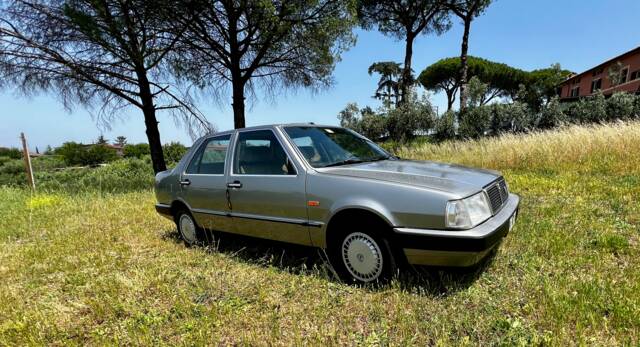
1986 | Lancia Thema I.E.
Gehörte einem Arzt und Freund des Sängers Lucio Dalla
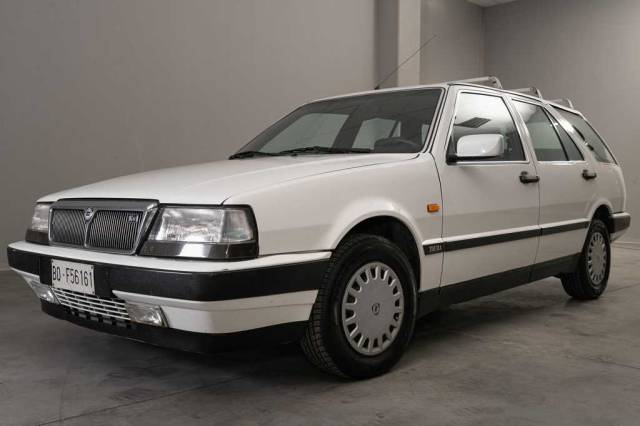
1991 | Lancia Thema Station Wagon 16V
SW 2.0. I.E. 16V 2^ SERIE
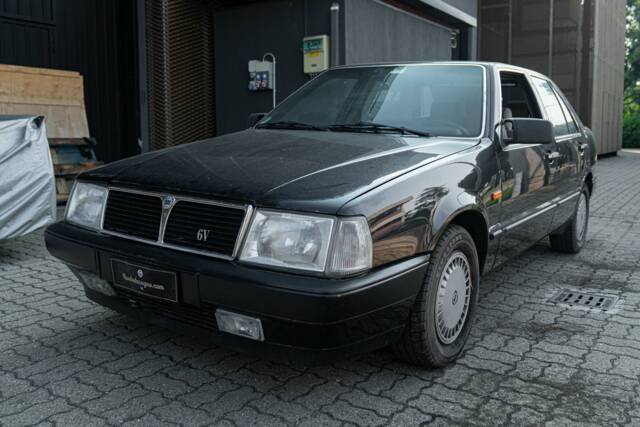
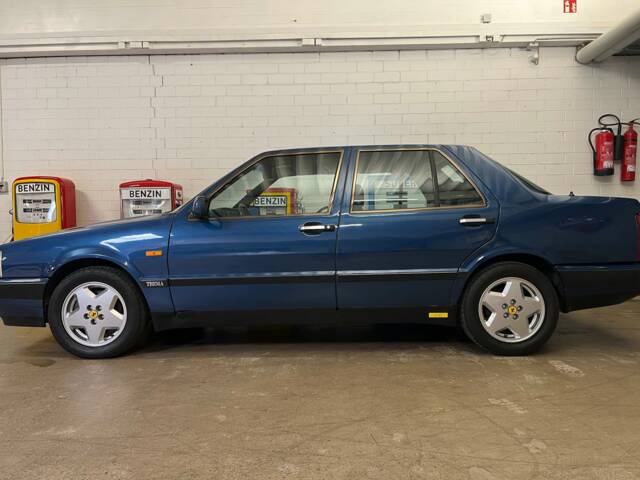
1988 | Lancia Thema 8.32
Lancia Thema 8.32
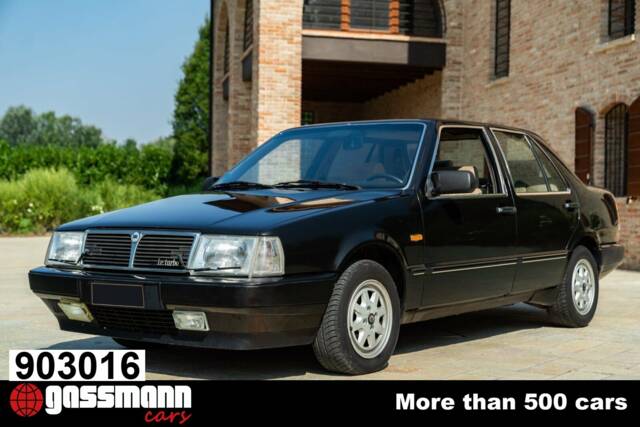
1986 | Lancia Thema I.E. Turbo
Thema i.e. Turbo Limousine - 834
Lancia Thema listing references from Classic Trader
Below you will find listings related to your search that are no longer available on Classic Trader. Use this information to gain insight into availability, value trends, and current pricing for a "Lancia Thema" to make a more informed purchasing decision.
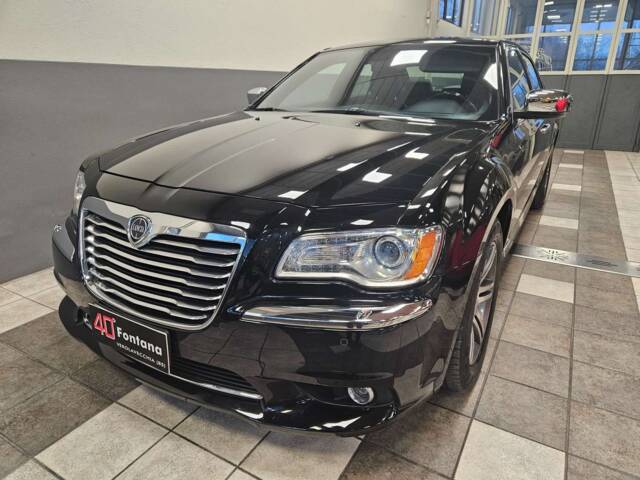
2013 | Lancia Thema 3.0 V6 MultiJet
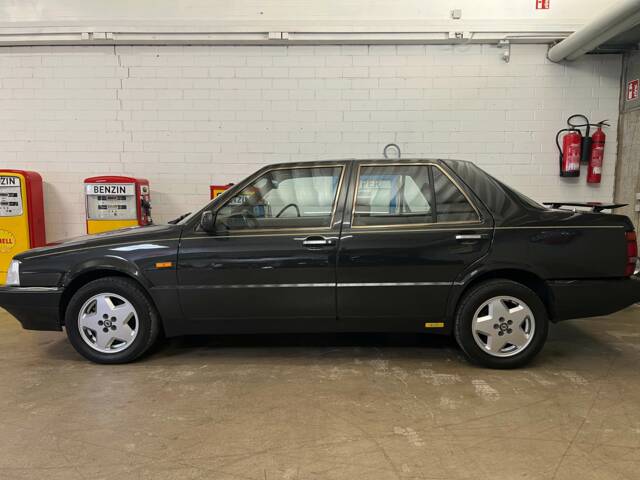
1988 | Lancia Thema 8.32
Lancia Thema 8.32
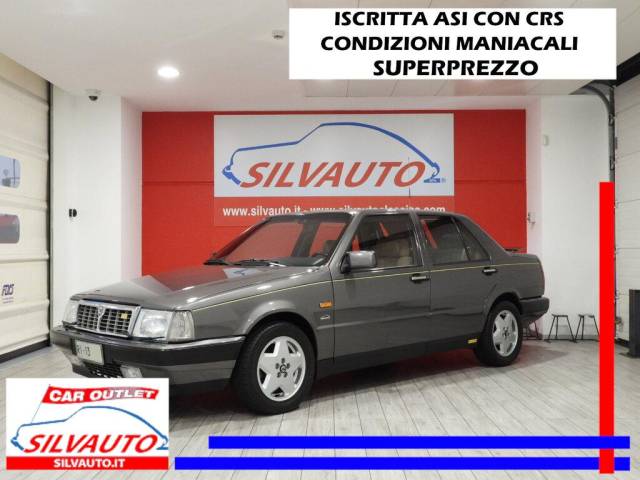
1987 | Lancia Thema 8.32
LANCIA THEMA 8.32 “FERRARI” 215CV I^ SERIE ISCRITTA ASI CON CERTIFICATO DI RILEVANZA STORICA E COLLEZIONISTICA – CONDIZIONI MANIACALI – SUPERPREZZO (1987)
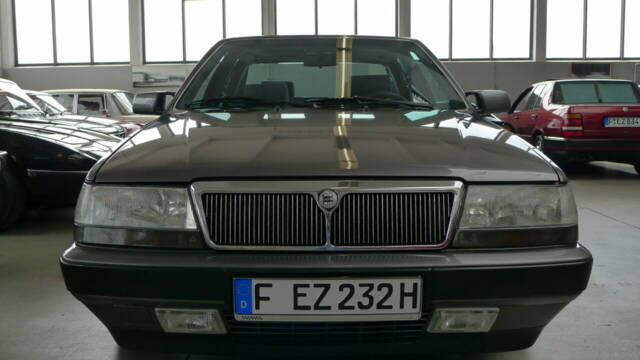
1991 | Lancia Thema I.E.
wunderbarer, sehr gepflegter und sparsamer daily driver
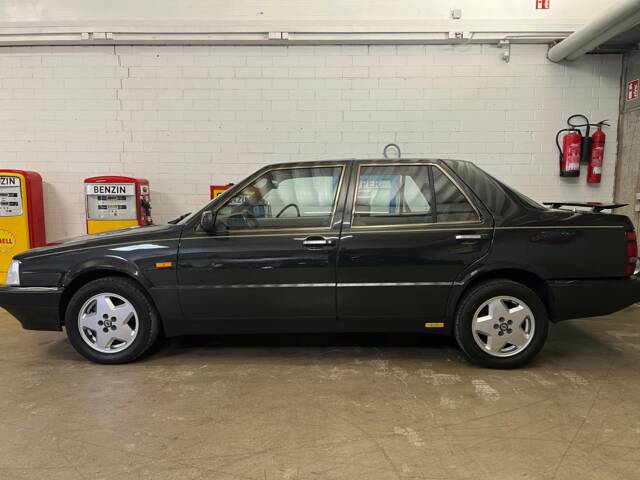
1988 | Lancia Thema 8.32
Lancia Thema 8.32
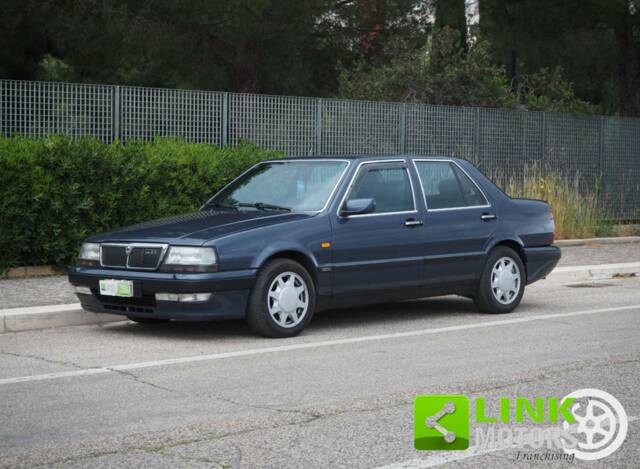
1990 | Lancia Thema I.E. Turbo 16V
LANCIA Thema 2.0 i.e. turbo 16V +GPL+ASI+
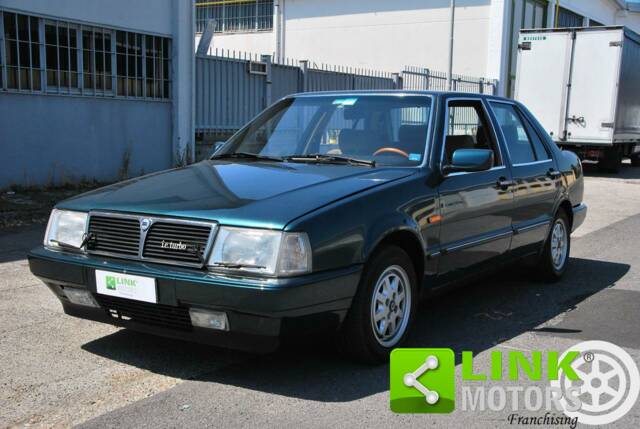
1986 | Lancia Thema I.E. Turbo
LANCIA Thema 2.0 Turbo I.E. Prima Serie - 1986
History of the Lancia Thema
Unveiled at the 1984 Turin Motor Show, the Lancia Thema marked Lancia’s ambitious entry into the executive car segment. Built on the joint Type Four platform with Alfa Romeo, Fiat, and Saab, the Thema was offered both as a saloon and an estate (Station Wagon by Pininfarina). Developed as the successor to the Lancia Beta and stepping into the role formerly filled by the Gamma, the Thema quickly established itself as one of Europe’s most comfortable and spacious offerings in its class. Early models featured 2.0-litre engines with dual overhead cams, later with balance shafts for smoothing vibrations. In 1986, turbocharged variants joined, and export markets saw refined V6 options. Period facelifts enhanced both aesthetics and technology, notably integrating the front grille and updating lighting. The final third series, launched in 1992, introduced the VIS variable intake system and further refined equipment. By 1994, production ended and the Lancia Kappa succeeded the Thema. Its reputation for quality engineering and opulent features made it a favourite among officials and discerning motorists.
Model History and Evolution
The Thema replaced the Lancia Beta and, alongside the Gamma, targeted the upper-middle-class segment. Key phases include the initial launch in 1984, introduction of estate models in 1986, a comprehensive facelift in 1988, the VIS motor’s arrival in 1992, and ultimately its replacement by the Lancia Kappa in 1994. Notably, the Thema was built in several variants: standard 2.0-litre engines (naturally aspirated and turbocharged), a range of V6 petrols, and the celebrated 8.32 powered by a Ferrari-derived V8. The car stood out with numerous comfort features, advanced safety tech for the era, and was considered both a flagship for Lancia and a symbol of Italian automotive sophistication.
Highlights of the Lancia Thema
- Broad lineup with highly diverse engine choices, from fuel-efficient four-cylinders to the Ferrari-powered 8.32.
- Station Wagon model offered for versatility and space, designed by Pininfarina.
- Thema 8.32 set benchmarks in performance with a 215 PS V8 and luxury materials by Poltrona Frau.
- Electric rear spoiler (first for a Lancia), high-end in-car technology, and noble interior options.
- The Thema 834 represents 99.7% of all Thema models listed for sale, underscoring its dominance among Lancia offerings. Demand statistics show 98.8% of views focus on the 834 code, highlighting consistent collector and enthusiast interest.
Technical Data
Special Editions and Collectible Models
The most renowned edition is the Thema 8.32, powered by a 32-valve, 8-cylinder Ferrari V8, with just over 3,200 built. Highlight versions include a rare run of 32 'Ferrari red' cars for the German market with numbered plaques. Noteworthy are also the Poltrona Frau full-leather interiors, special Alcantara options, exclusive wood trim, and forged alloys reflecting Ferrari design language. Thema models equipped with original features and in preserved condition are particularly sought after by collectors.
Weak Spots and Common Issues
The Thema 834 series is vulnerable to rust, especially on body panels. Electrical issues, often due to ageing wiring and complex electronics, are typical. Replacing certain trim pieces—especially for the 8.32 model—can be challenging due to limited parts availability. The Ferrari-based 8.32 is known for high fuel consumption (10.5–17.5 l/100 km depending on conditions). For late 2011–2014 Thema (essentially a rebadged Chrysler 300), weak points are its soft US-style suspension and a high curb weight leading to greater fuel usage. Specialists familiar with Thema quirks may not always be easy to find, especially outside Italy and Germany.
Engine, Performance, Transmission and Handling
The Thema delivers a characteristic long-distance comfort, combining soft but well-controlled suspension with direct steering through a front-wheel-drive setup. The standout 8.32 accelerates 0–100 km/h in 7.2 seconds, with a top speed up to 235 km/h. Turbocharged four-cylinder models (2.0 Turbo 8V/16V) are closely related to rally-proven Lancia Delta engines and provide lively dynamics. Most Thema feature five-speed manual gearboxes, with select automatics. Braking is managed by ventilated discs (front), and rear discs, for confident deceleration. The modern 2011–2014 Thema offers potent V6 petrol and diesel engines, but Euro-tuned chassis purists may find the American underpinnings feel too subdued. - Thema 8.32: Ferrari V8, Poltrona Frau interior, unique performance/luxury blend.
- Thema 2.0 Turbo 16V: Quick, reliable, using Delta DNA.
- Station Wagon: family practicality with upscale features.
Interior, Comfort, Exterior and Design
Styled by Giugiaro and Pininfarina, the Thema blends angular 80s Italian modernism with subtle luxury cues. The cabin often features extensive use of leather (Poltrona Frau for 8.32 and higher variants), Alcantara, and intricate wood inlays. Five-seat configuration, large rear legroom, and thoughtful touches like electrically adjustable and heated seats, sunroof, and premium audio elevate comfort. Externally, the understated bodywork is enhanced by discreet chromework, exclusive alloy wheels, and for the 8.32, Ferrari-heritage cues. Original paint choices include metallic silver, deep blue, green, and classic red. ABS, central locking, and power windows were standard in higher trims. A large boot and functional station wagon underline everyday practicality, while factory-fit alarm and immobiliser systems reflect security trends of the era.
Other Features
ABS and safety systems became available on upscale models, and several high-end audio system upgrades existed, including Nakamichi units. On Italian and German roads, Thema qualifies as a certified classic (H-Kennzeichen/ASI-cert), enhancing status and collectability. Later Thema models (2011–2014) featured US-market equipment such as rear cameras, large touchscreens, and extended towing capabilities (up to 2 tonnes when braked).
Summary
The Lancia Thema encapsulates the spirit of late 20th-century Italian executive cars: advanced technology, distinctive design, and a diversity of engines stretching from practical fours to a charismatic Ferrari V8. With 99.7% of classic listings, the Thema 834 stands as a cornerstone of the brand on today's classic market. While rust and electronics necessitate careful inspection, top variants—especially the Thema 8.32—remain exceptional finds for dedicated fans of automotive character and mechanical nuance.



